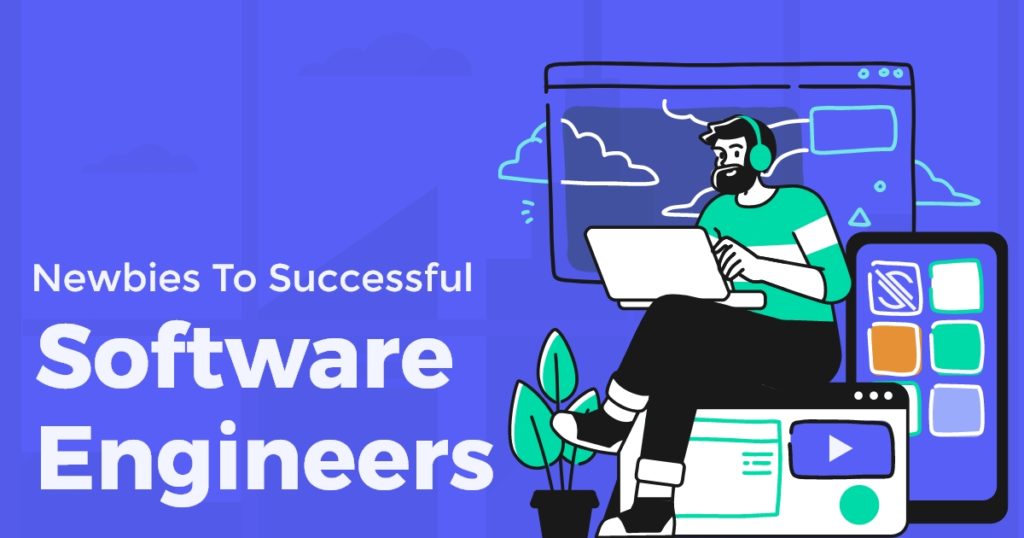
In the present age of technology, the advent of the internet has created numerous prospects for personal and career development. One area where this is particularly evident is in the field of software engineering. The demand for skilled software engineers is constantly on the rise, and aspiring individuals are turning to online courses to acquire the necessary skills and knowledge. These courses not only provide a flexible learning environment but also offer the chance to learn from industry experts at an affordable cost.
One individual who successfully transitioned from a newbie to a software engineer is Austin Tackaberry. In his inspiring journey, Austin embarked on a nine-month-long endeavor while working full-time to pursue his dream career. His story, chronicled in an article, showcases the power of online courses in transforming one’s professional trajectory.
Austin began his journey with a five-point plan, armed with a determination to immerse himself in coding. He started with Udacity CS101 and Harvard CS50, two renowned online courses that laid the foundation for his programming knowledge. With an unwavering commitment, he dedicated his evenings and weekends to learning, tracking his progress through completion percentages.
To enhance his learning experience, Austin delved into online communities, such as Reddit, Twitter, Stack Overflow, Medium, and Quora. By actively engaging with fellow developers, he built a strong online presence, which proved instrumental in discovering the best learning paths and resources. It was during this exploration that he stumbled upon Harvard CS50, a course highly recommended by seasoned CS students.
Austin’s journey continued with Harvard CS50, where he navigated through lectures and homework assignments, expanding his knowledge base further. As he progressed, he realized the importance of diversifying his skills and networking early on. Attending coding meetups became a regular part of his routine, allowing him to connect with like-minded individuals, gain insights from experienced professionals, and prepare for future job interviews. By attending over 50 meetups within those nine months, Austin cultivated valuable relationships and tapped into a wealth of knowledge.
During this time, Austin pondered his specialization within the vast field of software development. Web development seemed to offer high demand and abundant online resources, leading him to choose this path. However, the journey toward specialization was not without its uncertainties. He explored different frameworks and programming languages, initially leaning towards Ruby. Yet, upon realizing the shifting industry landscape, he switched gears and focused on JavaScript, ultimately embracing freeCodeCamp as his primary learning platform.
Month after month, Austin progressed through the curriculum, tackling various concepts and technologies. He supplemented his learning with additional resources like “You Don’t Know JavaScript” to deepen his understanding. While challenges arose, such as struggling with React and integrating D3 with React, Austin remained undeterred. He persevered, developing projects that showcased his skills, including an innovative stock market game and a unique job board that sorted listings based on user preferences.
As his knowledge grew, Austin prioritized applying his skills to practical scenarios. He polished his projects, incorporated testing methodologies, and refined his portfolio and resume. By the seventh month, he had gathered the confidence to begin his job hunt. Applying for a staggering 63 jobs, Austin assessed his portfolio and resume while simultaneously delving into the world of testing and Redux.
The journey that started with online courses and self-doubt culminated in Austin’s dream job. His story is a testament to the transformative power of online learning and the endless possibilities that lie within the grasp of dedicated learners.
For aspiring software engineers, Austin’s story serves as a beacon of hope and guidance. If you dream of a career in software engineering, seize the opportunity to unlock your potential. Simphini offers a wide array of training courses and learning plans that cater to different skill levels and career goals. Whether you are a novice just starting your journey or an experienced professional looking to upskill, online courses provide a flexible and accessible pathway to success. These courses offer a range of benefits, including:
1. Flexibility
Online courses allow you to learn at your own pace and on your schedule. You can study from anywhere, whether it’s in the comfort of your home or while traveling. This flexibility is particularly beneficial for individuals who are working full-time or have other commitments.
2. Cost-effective
Traditional education can be expensive, with tuition fees and additional expenses. In contrast, online courses are often more affordable, making education accessible to a wider audience. Many platforms offer free courses or affordable subscription models, allowing you to learn without breaking the bank.
3. Expert guidance
Online courses are often taught by industry experts and experienced professionals who provide valuable insights and practical knowledge. You have the opportunity to learn from the best in the field, gaining insider tips and techniques that can accelerate your learning process.
4. Practical projects and hands-on experience
Many online courses incorporate real-world projects and hands-on exercises to apply your knowledge. This practical experience is crucial in developing your skills and building a portfolio that showcases your abilities to potential employers.
5. Supportive communities
Online courses often foster communities of learners where you can connect with peers, ask questions, and receive feedback on your work. These communities provide a supportive environment where you can collaborate, share resources, and gain motivation from like-minded individuals.
6. Up-to-date content
The field of software engineering is constantly evolving, with new technologies and frameworks emerging regularly. Online courses are designed to keep pace with these changes, ensuring that you learn the most relevant and up-to-date information. This is vital in staying competitive and meeting industry demands.
In conclusion, online courses have revolutionized the way individuals can acquire the skills and knowledge needed to become successful software engineers. Austin’s journey exemplifies how dedication, the right learning resources, and a supportive community can transform a novice into a skilled professional. With the abundance of online courses available today, aspiring software engineers have an incredible opportunity to embark on their transformative journey. Whether you choose to pursue a structured curriculum or follow a self-directed learning path, online courses can provide the stepping stones toward a fulfilling and lucrative career in software engineering. So seize the opportunity, embrace online learning, and unlock your potential in this exciting field.
